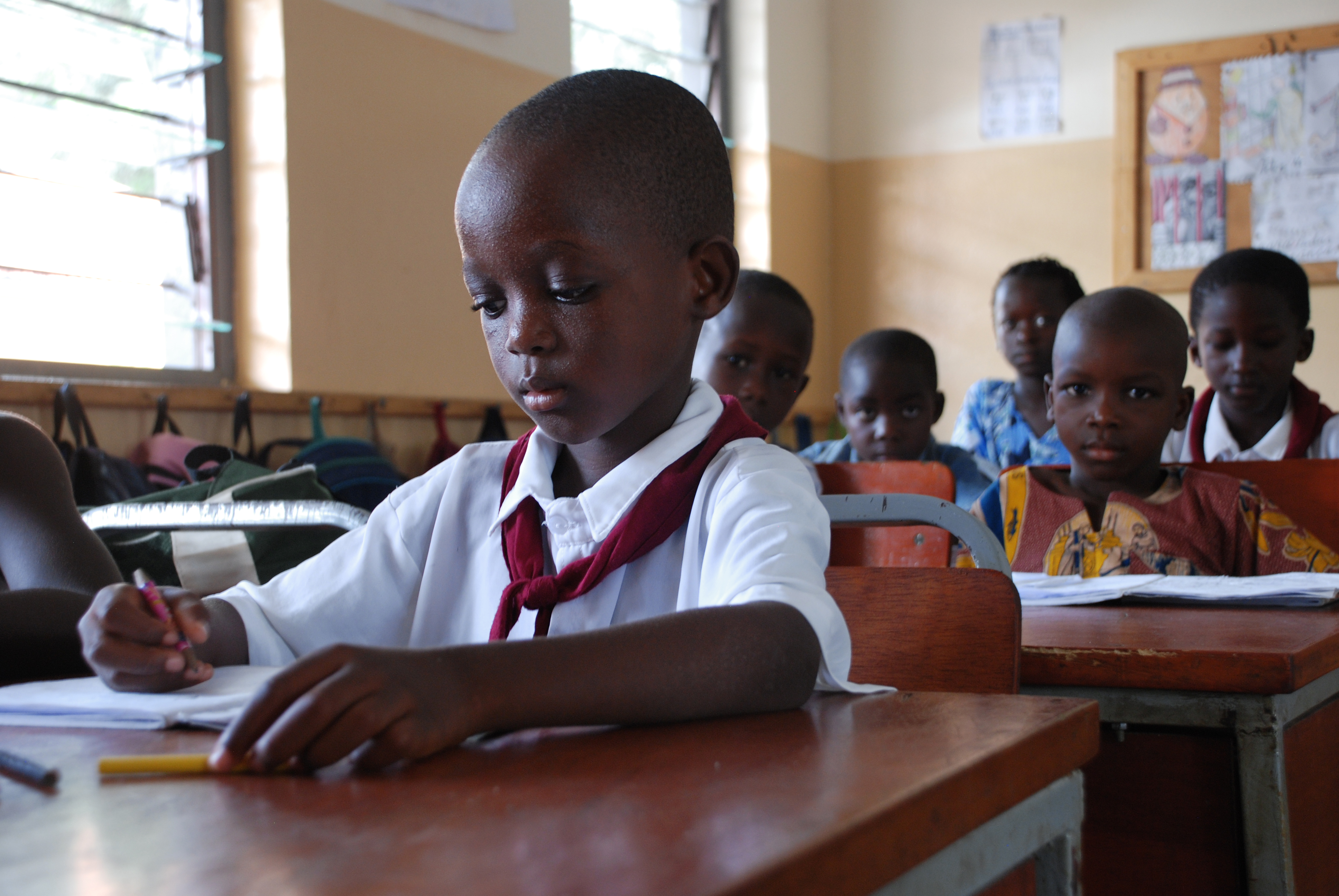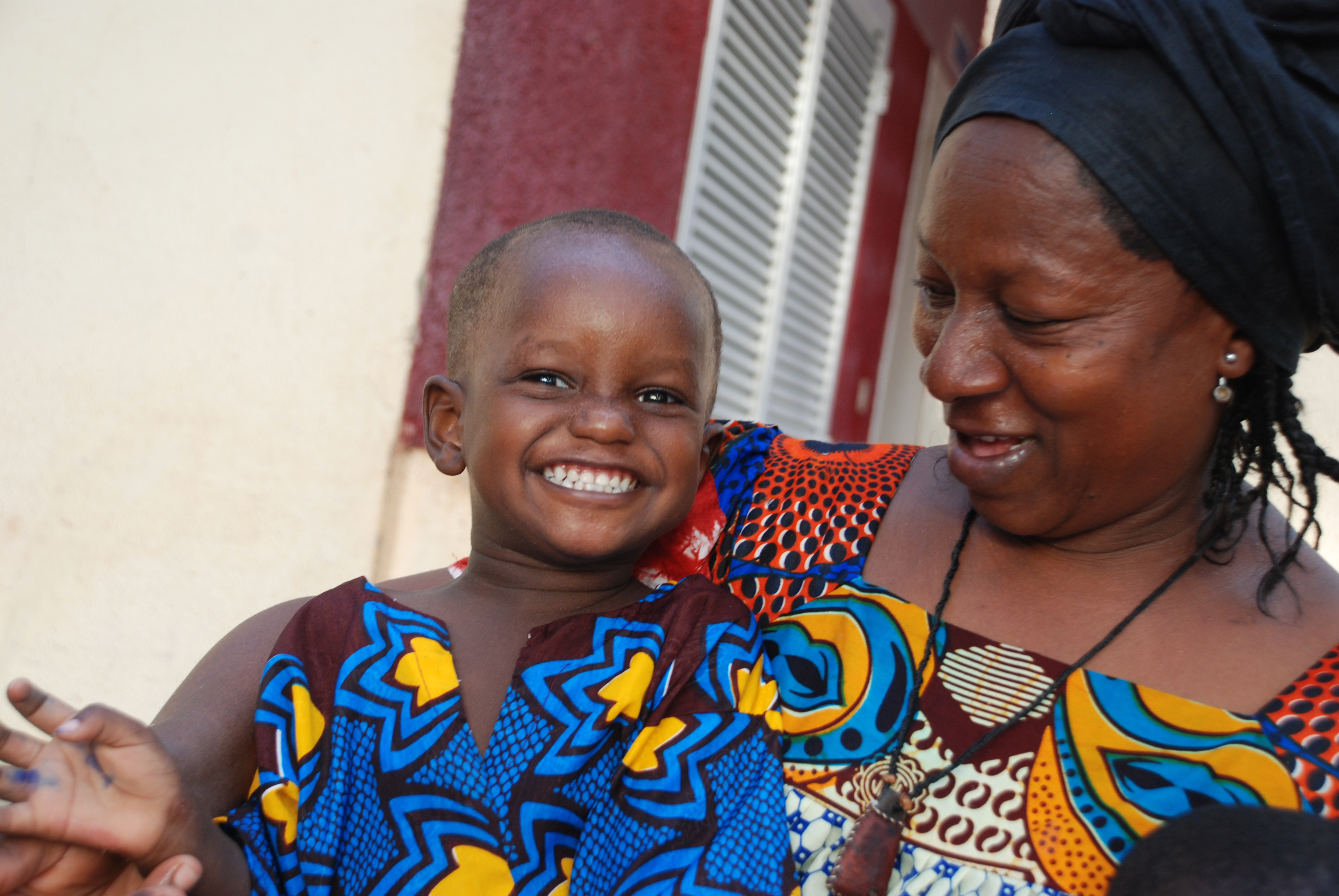Despite recent efforts to protect the city's children, numerous child-policy challenges are yet to be tackled in Bissau

Boy doing schoolwork (photo: C. Ladavicious)
Around 17 per cent of all women above the age of 15 are HIV-positive, which strongly contributes to the country's incredibly high child and maternal mortality rates. Roughly one in five children dies during birth, and life expectancy in the country is low at only 47 years.
Around 50 per cent of school-aged children in Bissau are not enrolled. Many of these children are withdrawn from school as a result of economic necessity. Life in the streets of Bissau can be harsh: a high number of young children are engaged in forced begging. Others sell merchandise or clean car windshields at traffic junctions in order to support their parents with the extra money they make. Female genital mutilation, child trafficking and the commercial sexual exploitation of children continue to be issues that mark the lives of thousands of children in Guinea-Bissau. Children are particularly trafficked between Senegal and Guinea-Bissau as borders between the two countries are poorly protected.
In Bissau, the need for long-term alternative care is evident
The first activities of our organisation in Guinea-Bissau date back to the early 1990s. The government of Guinea-Bissau has implemented a number of projects to support vulnerable children in the country. Nonetheless, a great need for long-term alternative care remains as thousands of young single mothers are struggling to care for their children while the high poverty levels continue to cause neglect and child abandonment.
What we do in Bissau
Located near the centre of Guinea-Bissau's capital, SOS Children's Village Bissau comprises twelve SOS families where up to 120 children live with their brothers and sisters and are cared for by their loving SOS mothers.
Family strengthening programmes represent an important pillar of our work in Bissau. The SOS Family Strengthening Programmes aim to enable children who are at risk of losing parental care to grow up within their own family. Many young mothers who would otherwise not be able to raise their children have sought our support. They are now able to go to work and earn a living while their children are being looked after in our day-care centre. The SOS Kindergarten hosts up to 150 children in four colourfully painted classrooms. The SOS Hermann Gmeiner School has become an educational benchmark in the region both at primary and secondary school level. We make sure that all our students receive high-quality education and that all of them learn English as a foreign language.
Through the SOS Social Centre we offer counselling, psychological and basic medical support to the surrounding community and all children under our care. In order to inform the local community about the dangers associated with HIV/AIDS, the SOS Social Centre frequently hosts information workshops and seminars regarding public health issues. We provide legal advice and also aim to raise awareness of hygiene and child rights and improve people's parenting skills. The participating families are organised in family committees who run community homes and centres, with SOS Children's Villages providing training and capacity building.
With the support of our qualified staff, the young people in the SOS Youth Programme develop perspectives for their future and learn to shoulder responsibility as they lead semi-independent lives. They either attend a vocational training course or go on to higher education and are encouraged to develop a sense of team spirit and to build contacts with relatives and friends.

Proud SOS mother and a happy child (photo: C. Ladavicious)
Family strengthening programmes represent an important pillar of our work in Bissau. The SOS Family Strengthening Programmes aim to enable children who are at risk of losing parental care to grow up within their own family. Many young mothers who would otherwise not be able to raise their children have sought our support. They are now able to go to work and earn a living while their children are being looked after in our day-care centre. The SOS Kindergarten hosts up to 150 children in four colourfully painted classrooms. The SOS Hermann Gmeiner School has become an educational benchmark in the region both at primary and secondary school level. We make sure that all our students receive high-quality education and that all of them learn English as a foreign language.
Through the SOS Social Centre we offer counselling, psychological and basic medical support to the surrounding community and all children under our care. In order to inform the local community about the dangers associated with HIV/AIDS, the SOS Social Centre frequently hosts information workshops and seminars regarding public health issues. We provide legal advice and also aim to raise awareness of hygiene and child rights and improve people's parenting skills. The participating families are organised in family committees who run community homes and centres, with SOS Children's Villages providing training and capacity building.
With the support of our qualified staff, the young people in the SOS Youth Programme develop perspectives for their future and learn to shoulder responsibility as they lead semi-independent lives. They either attend a vocational training course or go on to higher education and are encouraged to develop a sense of team spirit and to build contacts with relatives and friends.